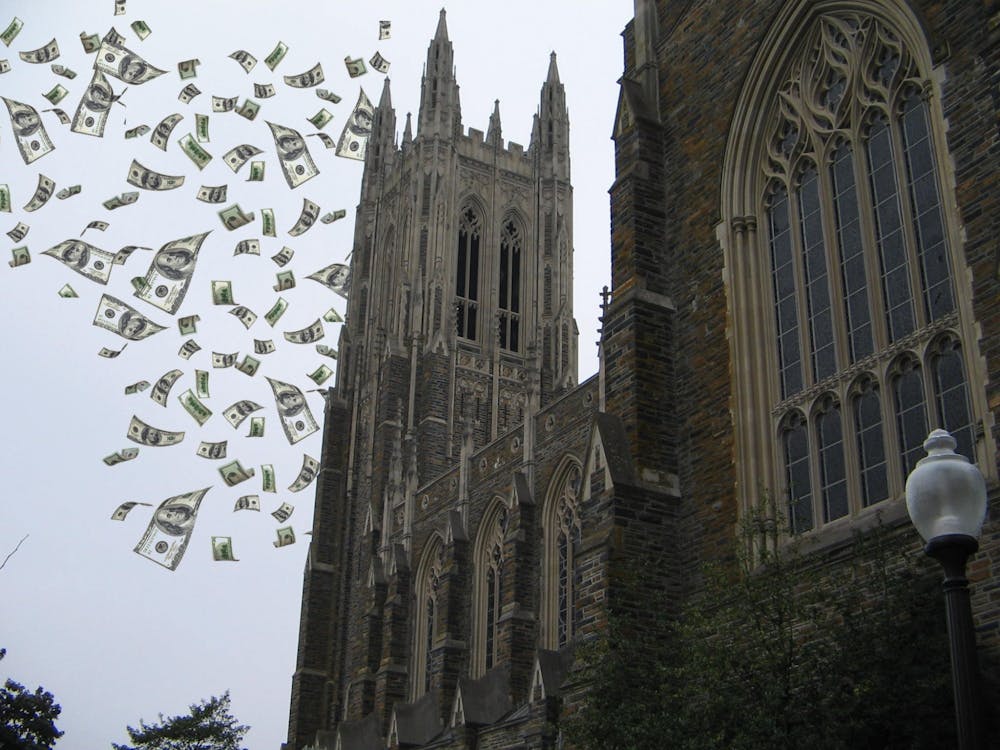How would you spend $100,000? One Duke club can teach you how to invest for positive social impact.
The Duke Impact Investing Group (DIIG) recently secured $100,000 to invest in impact-oriented businesses from University administration after President Vincent Price took a recommendation from the Advisory Committee on Investment Responsibility. The goal of impact investing is to generate a social and environmental impact in addition to financial returns, according to the DIIG website.
“We have $100,000 which I think is—to my knowledge—the largest fund ever entrusted to a student group to manage,” said senior Michael Tan, co-president of the organization.
The student-driven group hopes to educate the Duke community on the field of impact investing and drive growth for socially- and environmentally-conscious businesses through their investments.
“We saw that there was really no avenue for engagement in impact investing at the undergraduate level,” Tan said.
DIIG Executive Vice President Peter Sun, a senior, explained that the group has gone through several structural changes in its history. The organization—which grew out of the house course “Impact Investing 101”—has expanded in recent years to include teams focused on investing, consulting and research.
“I would say my role is very much focused on transforming DIIG from one house course to a 50-person impact investing fund,” Sun said.
The DIIG website describes the organization’s goals as three-fold: spreading awareness to students about social entrepreneurship and impact investing, providing capital to small businesses and startups in the Triangle and donating pro-bono consulting for socially-oriented local companies.
Tan explained that students often begin by enrolling in the house course and later apply to become analysts for the group. The organization is entirely student-driven, with student analysts managing pitches and research in the different sectors DIIG is involved with.
Sun added that DIIG is a way for Duke students to bridge the gap between organizations that are more pre-professional and other NGOs and social impact-oriented groups.
With the $100,000 from the University, DIIG is able to connect money with a trained team to manage the investments, Sun said. Tan noted that the team hasn’t yet invested the funds but is in the process of identifying key priorities and target companies.
“This is not our money, it’s Duke’s money,” Sun said. “We are managing this fund not just for us but for the whole community.”
Sun explained that part of the reason DIIG operates is that the current generation of college students is going through “one of the largest intergenerational wealth transfers in history.”
“In comparison to our parents’ generations, ours cares much more about social issues and impact, which has manifested in impact investing becoming a super high-growth field that we and many others wanted to get involved in,” Tan wrote in an email to The Chronicle.
Sun noted that though young people have distinct investment preferences, they are not always aware of how impact investing works or how to go about managing wealth. DIIG helps equip students with the knowledge needed to understand the field of impact investing.
“Look,” he said, “don’t expect the tooth fairy to teach people how to do impact investing.”
Correction: DIIG did not receive the $100,000 from the Board of Trustees, as was previously stated, but rather from University administration. The Chronicle regrets the error.
Get The Chronicle straight to your inbox
Sign up for our weekly newsletter. Cancel at any time.

